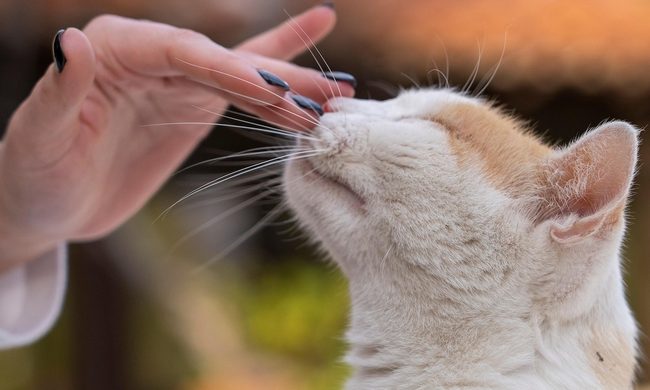One major reason to own a pet is to stroke them and show them the love that you feel toward them. Cats, however, aren’t always so thrilled with that idea. You may have been completely cautious about it. You may have tried to learn proper cat petting techniques so as not to get mauled. Cats are known for their sass, feistiness, and — ultimately — their inexplicable behavior. They are like little, adorable divas that don’t seem to know exactly what they want. They purr and rub against you until you pet them, but then they’ll scratch you out of nowhere when they’ve had enough. This type of behavior is hard to understand, especially when you compare them to the friendly, loving nature of (most) dogs. Even though cats seem to lash out and scratch people for no reason, there is usually an explanation for their behavior. Luckily, knowing why they behave this way is the best way to prevent getting your arm torn up out of nowhere.
Body language is key

Your cat typically always warns you before they are about to strike. The only way to see it coming is to be aware of the key body language features that your cat will display. Body language is important to look out for during petting or grooming sessions. While some cats could be petted for hours on end, others have a strict limit. When a cat is stroked for too long, they can become overstimulated. Overstimulation will make a cat want the petting session to end abruptly. They obviously can’t ask you to stop, so they lash out and scratch to let you know they are done. It may not be the nicest way to ask you to stop, but it is the only way they know how. Narrowed eyes, retracted ears, and tail-wagging are key signs that your cat is done being petted. Learn to look out for key signs to ensure a happier ending to any petting session.
Your cat feels threatened
Sometimes, your cat will suddenly feel threatened if they see a person, dog, or another cat through the window or outside. Unfortunately, cats are not the most rational creatures, so they will typically attack the nearest person or animal. Scratching is a defense mechanism they use, and it is important to work with your cat to redirect aggression. You can groom or pet your cat in areas where they can’t see any impending threats. This way, they won’t scratch you out of nowhere, and you can enjoy any and all affection sessions you want.
Undiagnosed medical issues
Feeling under the weather can cause irritation and a bad mood in anyone. The same goes for your cat. If your cat is typically a calm-tempered animal and sudden aggression arises, there may be an underlying medical issue. Medical issues that may cause sudden aggression like random scratching include wounds, mites or fleas, or a hormonal imbalance. It is always important to take your cat to the vet if you suspect any injuries or medical issues with your cat.
Playful scratches are common

Believe it or not, drawing blood can be a playful activity for your cat. When your cat chases a fake mouse or attacks that little red laser dot, they play aggressively, using their claws and teeth. Sometimes, they forget to distinguish between your skin and toys. Because of this, your cat may scratch or bite you, but they mean it with playful love. It is important to teach your cat that hands and other limbs are not toys. Use a firm, “No,” and then positive reinforcement to teach your cat to play safely — you’ll keep your hands and arms safe from unnecessary scratching.
At a loss? Call your vet
If you have tried everything and still can’t seem to crack the code to your cat’s scratching issues, you should call your vet or a behavior specialist. You may be missing some small aspect that is the driving force behind your cat’s problem. Reaching out for help will narrow down the treatment options for a more effective and efficient solution for your cat.
There are many reasons why your cat may be lashing out at you randomly. It is important to understand that this random scratching isn’t actually random at all. Your cat may be struggling with medical issues, overstimulation, or feelings of being threatened. Regardless of why your cat is lashing out, it is important to practice training and positive reinforcement to correct behavioral issues. Also, ensure that potential medical issues are addressed so your cat can be healthy and happy and live a long, scratch-free life.



